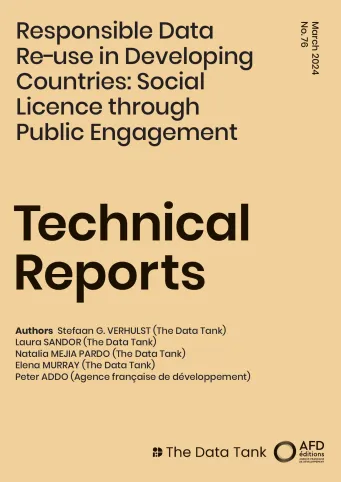Share the page
Responsible Data Re-use in Developing Countries: Social Licence through Public Engagement
Published on

The datafication era has transformed the technological landscape, digitizing multiple areas of human life and offering opportunities for societal progress through the re-use of digital data. Developing countries stand to benefit from datafication but are faced with challenges like insufficient data quality and limited infrastructure. One of the primary obstacles to unlocking data re-use lies in agency asymmetries—disparities in decision-making authority among stakeholders—which fuel public distrust. Existing consent frameworks amplify the challenge, as they are individual-focused, lack information, and fail to address the nuances of data re-use. To address these limitations, a Social License for re-use becomes imperative—a community-focused approach that fosters responsible data practices and benefits all stakeholders. This shift is crucial for establishing trust and collaboration, and bridging the gap between institutions, governments, and citizens.
Useful Information
-
Authors
-
Stefaan G. VERHULST , Laura SANDOR , Natalia MEJIA PARDO , Elena MURRAY (The Data Tank), Peter ADDO (Agence française de développement)
-
Edition
-
76
-
Number of pages
-
48
-
ISSN
-
2492-2838
-
Collection
-
Technical Reports
-
Other languages
